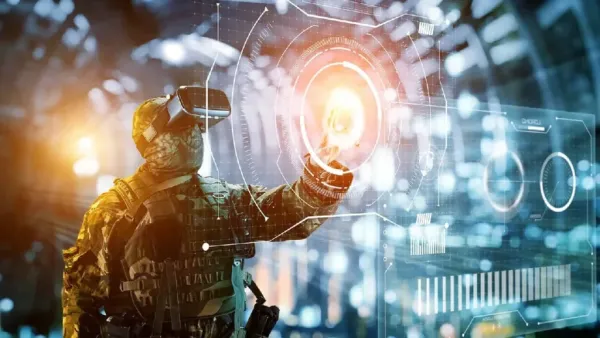
AI in national security is becoming a vital component of planning and is no longer merely a tool for economic innovation. AI is being used more and more by governments worldwide in their cybersecurity procedures, military and defense operations, intelligence collection, and battlefield decision-making systems. As countries compete for a technological advantage, the incorporation of AI in national security infrastructures is changing defense technology, military doctrines, and geopolitical competitiveness.
AI is changing how nations prepare for and react to contemporary dangers in both the physical and digital spheres, from autonomous weapons systems to predictive threat assessments.

AI in national security offers unmatched benefits in national defense due to its capacity to analyze large information, spot trends, and make judgments quickly. It makes possible:
AI is becoming the brains behind contemporary defense tactics as AI in national security becomes more and more data-driven.
To focus its AI efforts, the U.S. Department of Defense created the Chief Digital and AI Office (CDAO). The United States is investing in AI for surveillance, logistics, and military support, as seen by initiatives like JAIC (Joint Artificial Intelligence Center) and Project Maven (for analyzing drone footage).


AI is a key component of China’s “Military-Civil Fusion” policy, which aims to use civilian technology for defense. The PLA is making investments in the following:
By 2030, China hopes to lead the world in artificial intelligence, particularly AI in national security.
Russia’s defense plan consists of:


AI in national security increases the likelihood of autonomous escalation, system breakdown, and misuse in hybrid wars, even as it improves national capacities.
Concerns about ethics increase as AI becomes more integrated into security sectors. Among the queries are:


Global organizations and alliances like the OECD, NATO, and the UN are starting to talk about ethical frameworks, human supervision needs, and AI arms control. A legally binding international agreement is still elusive, though.
Maintaining human control over lethal force and avoiding unforeseen outcomes depend on the development of AI governance in defense.
AI will be a force multiplier in all areas of security over the course of the next ten years. Leading defense AI nations will achieve strategic and tactical advantages in deterrence, diplomacy, cyber resilience, and combat.
But to do this, one must: encourage multidisciplinary cooperation between the business, public, and military sectors, robust data infrastructure and cybersecurity, transparent ethics, testing, and validation procedures for AI. International communication to foster mutual trust and stop escalation.
The use of AI in national security will only grow. The way technology is regulated, used, and limited will determine whether it results in stability or new kinds of conflict.